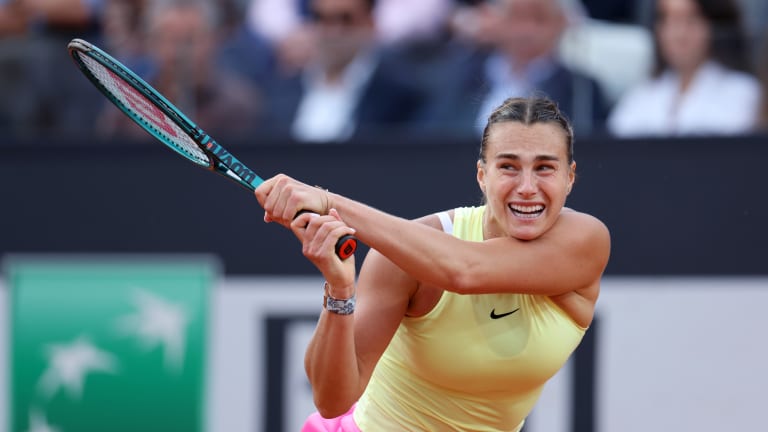Rome, Italy
Iga Swiatek stands alone on the WTA after completing Madrid-Rome double
By May 18, 2024Rome, Italy
“I can dream again”: On Alexander Zverev’s Rome triumph and what awaits him in Paris
By May 19, 2024Rome, Italy
Alexander Zverev outdoes Nicolas Jarry to win second Rome title, sixth Masters 1000 crown
By May 19, 2024Rome, Italy
Rome ATP Final Preview: Alexander Zverev and Nicolas Jarry cap another surprising men’s week
By May 18, 2024Rome, Italy
Iga Swiatek defeats Aryna Sabalenka to win Rome and complete rare Madrid-Rome sweep
By May 18, 2024Rome, Italy
Rome: Nicolas Jarry seeks Chile's first Masters 1000 title in 25 years after edging Tommy Paul
By May 18, 2024Rome, Italy
Iga Swiatek vs. Aryna Sabalenka: What their Rome final could mean for their rivalry
By May 17, 2024Rome, Italy
Alexander Zverev returns to Rome final with comeback win over Alejandro Tabilo
By May 17, 2024Rome, Italy
Tommy Paul, Taylor Fritz lead American men in discovering (or rediscovering) the joys and secrets of tennis on red clay
By May 17, 2024Rome, Italy
Iga Swiatek continues to dominate Coco Gauff, but she’s also making her a better player
By May 16, 2024Iga Swiatek stands alone on the WTA after completing Madrid-Rome double
When the Pole and Aryna Sabalenka met in Madrid, they stood together atop the tour. No longer.
Published May 18, 2024
Advertising

GettyImages-2153566620
© Getty Images
Advertising

GettyImages-2153564781
© Getty Images
Advertising

Coco goes couture in new Miu Miu kit
The 21-year-old is taking tennis fashion to a new level.